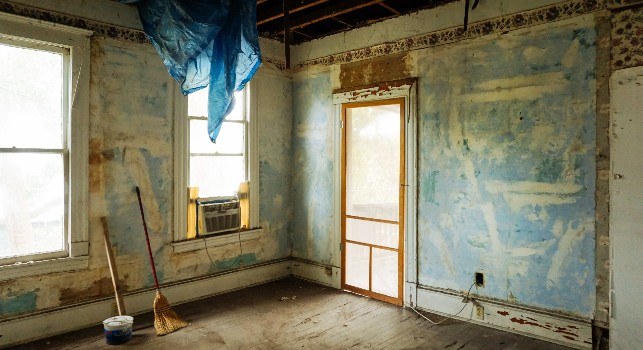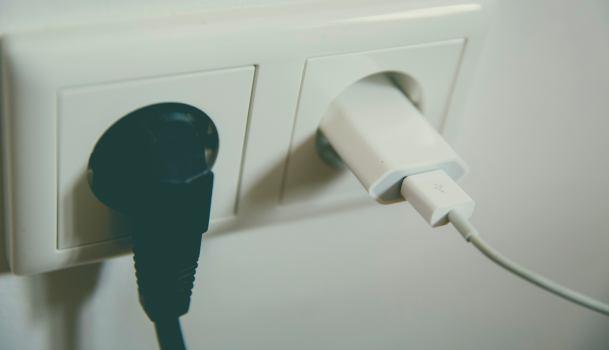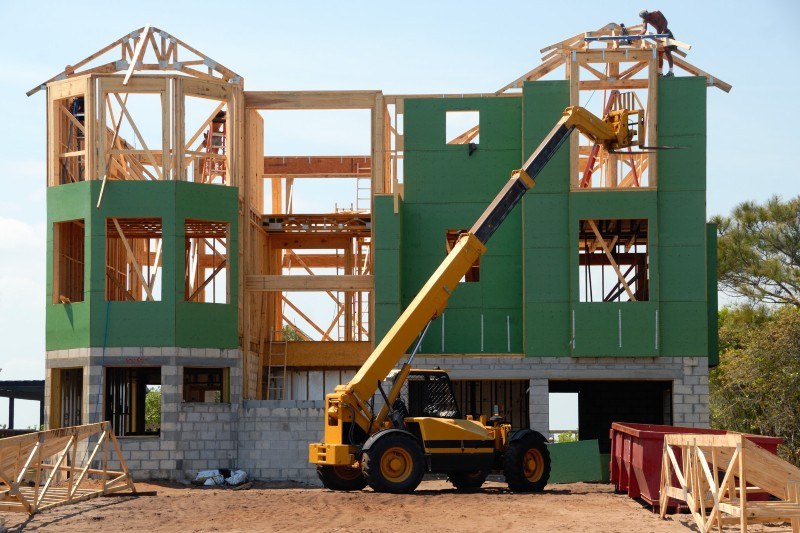
Can the Redfin Estimate be Trusted? What Home Sellers Need to Know
Posted on Oct 12, 2020
With the real estate market in flux, homeowners want to know how much money their home can command...

Posted on Oct 12, 2020
What should homeowners look for when buying a new home? An outdated kitchen is a drawback for some, while another family might see old cupboards as a way to get a great starter home for a more affordable price.
However, every homeowner is going to want to know if there’s damage to the foundation or mold growth - and the sooner you know, the easier it is to make informed decisions. Here’s what to know before buying a house so you can avoid home buyer's remorse.
HGTV shows introduced millions of people to house flipping. Over the years, though, there’s been plenty of stories about poorly done house flips that result in expensive fixes for homeowners. YouTube tutorials can make shower installations look easy, but a missed step can lead to extensive water damage. And home flippers are incentivized to work as quickly as possible, because the longer they own the house, the less money they recoup.
Of course, many house flippers are experienced renovators who know what they’re doing - so flipped homes can be a great way to get a fully renovated home. But here are some of the things you should look out for.
When it comes to touring flipped homes, senior buyer agent Sommer Mateer says that a huge red flag is finding bubbles in the flooring. “A bubble is exactly what it sounds like,” she explains. “Walking around the house, you get to an area of the flooring and there’s no support under that part of the flooring - you can push down and it goes up and down. If I find any of that I know they’ve cut corners or used a B team to do the renovation.”

There’s more to a home than just the square footage. Being near a main road or highway can be nice for your commute, but if the house is too close, you might be hearing traffic all hours of the night. What the neighborhood is like and how convenient it is to go to the local grocery store are also going to matter. Figure out where the grocery stores, parks, restaurants, and bars are, along with the school district and any other shops or amenities you appreciate having nearby. Use this website to determine your neighborhood’s walkability score.
Deferred maintenance refers to home problems that the previous homeowners put off dealing with. This can be something as innocuous as the need for a paint job, or as serious as not fixing a hole in the roof. If you see that the homeowner hasn’t been keeping up with regular maintenance, be wary - there’s a good chance that they haven’t kept up with other issues that you can’t see, too.
Here are a few signs of deferred maintenance that in themselves may be easy to fix, but can be a sign that homeowners haven’t been keeping up with repairs.
“I like to take a look at the windows when I’m showing homebuyers a property,” says senior buyer agent Isabella Faro-Winkelman. “Have they been repaired, or are they the original windows?”
It’s a good idea to check to make sure windows actually open, and that doors actually shut.
Why? If windows break, they’re often replaced with cheaper alternatives. If the wood is already warping and making it difficult for windows to open, you may be looking at a complete replacement within three to five years - and windows can be surprisingly expensive to repair or replace (the average, according to Home Advisor, is $650 per window). Another issue with cheap windows: they’re often inferior insulators, driving up the cost of your heating and cooling bills.
“I always look for hot ticket items that are going to be more costly to repair or replace,” explains Mateer. “If the caulking needs to be replaced on the windows, it can be $300-$500. If the windows are super old school or have open seals, that’s going to cost you. Open seal is when you can see a mist or fog in between double paned gas, and it means the argon gas that was originally in the pane was replaced and your home isn’t energy efficient. Your heating bill and your central air bills will be higher once that seal is broken. Single pane glass is really old, and you’re definitely looking at window replacement in the very near feature.”
“If blinds or curtains are drawn, I want to see what’s going on there,” says Mateer.

If there’s too much water in soil - or conversely, not enough - it can begin to shift, swell, or shrink, and a home built atop this soil can begin to experience deep structural damage. Poor drainage, droughts, and mistakes during construction can all lead to soil movement.
As the soil continues to shift, cracks can form in the foundation, pulling the house apart. It’s worth noting that foundation problems can be fixed, but it’s an expensive problem that not all homebuyers are willing to tackle. Here’s how you can keep an eye out for damage to the foundation.
Every family is different, but there’s a few common “wants” on the lists of most families. This can be especially important to look for if you plan on having kids but don’t have any yet, since it may involve re-framing how you evaluate the home. When you think of what to look for when buying a house, consider your future needs as well.
It’s important to identify what you’re looking for before you check out a house. Agents are legally prohibited from commenting on things like schools, crime, and demographics, so if that stuff is important to you, you’ll need to do your own research. In other words, they can point out useful home features, but they can’t tell you that a home’s feature is, specifically, “family friendly.”
According to the National Association of Realtors, nearly half of homeowners say that “more storage space would make their residence ideal.” Some homeowners may prioritize a walk-in closet, but equally as important are everyday storage options in the kitchen, bathroom, basement, and bedrooms. It’s a lot easier to stay organized if it’s easy to put things away! For this reason, take note of how much storage space is available in the home - or what you’d have to buy (shelves, bins, boxes) to supplement it.
Virtually every homebuyer today has a cell phone, and plenty of other gadgets they need to plug in. Many homebuyers, though, forget to check their potential home’s compatibility. Here’s what you should be checking.

We’ve heard the horror stories of someone who found their dream home, only to realize after moving in that they have nightmare neighbors. It’s possible to overlook some potential issues with a home if you’re always observing it at the same time of day - here’s some house hunting tips you’ll want to keep in mind.
Landscaping is an essential part of most homes. If you’re visiting homes in fall, winter or early spring, it’s easy to overlook the home’s landscaping. It’s worth taking a walk around the home to get a feel for overall plant health. If it turns out you need to do a heavy amount of landscaping, that bill can run from $3,000 and up if you decide to hire a landscaper. Here are a few common landscaping problems you should look out for.
According to the Centers for Disease Control (CDC), mold is very common in homes. Sometimes homeowners aren’t affected by it at all; other times it can trigger asthma, coughing, and serious conditions such as shortness of breath. Mold can be controlled by keeping humidity levels low, proper ventilation, fixing leaks and properly drying after a flood. Here’s what you need to look out for:
If you’re facing major foundational issues, black mold, termite infestations, or outdated electrical wiring, it might be worth it to walk away. But keep in mind that most homes (even new construction) will have some issues, and it doesn’t always mean you need to let it go! It's normal to be nervous about such a major purchase.
Being aware of your home’s potential issues, though, will help you make a more informed decision and can give you leverage when it comes to the closing table.
Subscribe to our newsletter to get essential real estate insights.

Posted on Oct 12, 2020
With the real estate market in flux, homeowners want to know how much money their home can command...

Posted on Oct 12, 2020
Virginia’s real estate market has been hot - to the point that many people are wondering whether it...

Posted on Oct 12, 2020
In a buyer’s market - where buyers have the upper hand when it comes to offering and negotiating -...